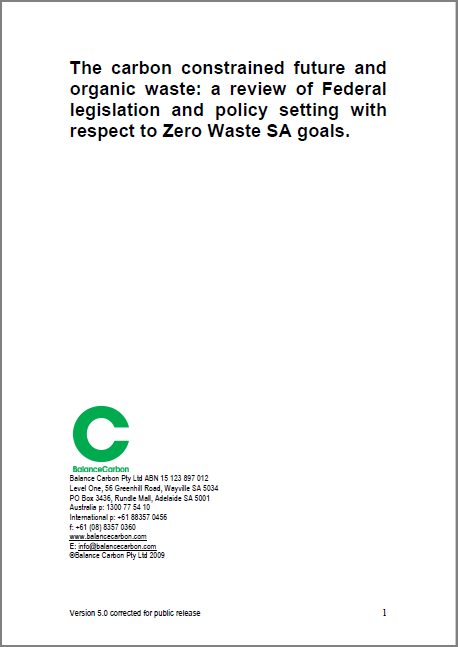
- Archive (pre-2016)
Carbon constrained future and organic waste (2009)
The carbon constrained future and organic waste: a review of Federal legislation and policy setting with respect to Zero Waste SA goals. To use an oft quoted phrase, “you can’t manage what you don’t measure”. In the case of examining the relationship between the waste hierarchy and the basic carbon management principles presented at the start of this document, measurement of emission outcomes is important in waste projects. This will be critically important into the future, as it becomes increasingly likely that there either may be a cost associated with emissions (under the proposed CPRS cap and trade scheme), or a potential financial revenue stream. Executive Summary: This report presents the findings of a review into the existing and proposed legislation in Australia looking to reduce greenhouse gas emissions, and the implications of the legislation for the organic waste processing industry. The National Greenhouse & Energy Reporting Act (along with subordinate legislation and regulation, collective known as the NGERS) came into effect on the 1st July 2008, and has requirements for the reporting of emissions and energy consumption or production by facilities or organisations. The thresholds occur when a company has operational control of a facility (effectively a single physical address) that emits 25 kilotonnes or more of greenhouse gases (CO2e), or produces or consumes 100 terrajoules or more of energy; or their corporate group emits 125 kilotonnes or more greenhouse gases (carbon dioxide equivalent, CO2-e), or produces or consumes 500 terrajoules or more of energy in 2008/09. For the waste industry, bthis means that landfills that treat waste and create methane (through anaerobic conditions at the landfill) and capture and combust the methane may need to report emissions if they trigger these thresholds.
Download




